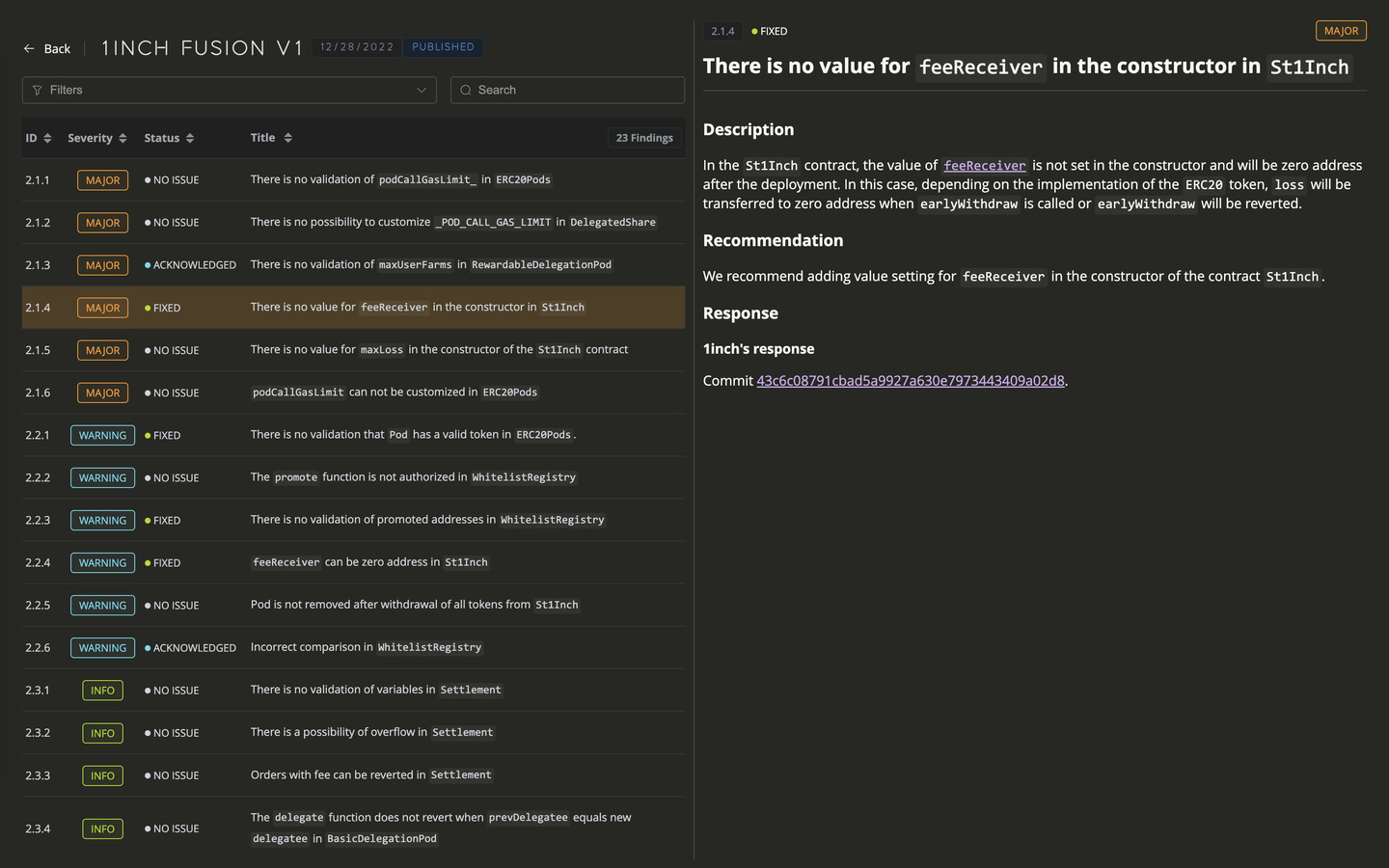Why Smart Contract Audits are Non-Negotiable
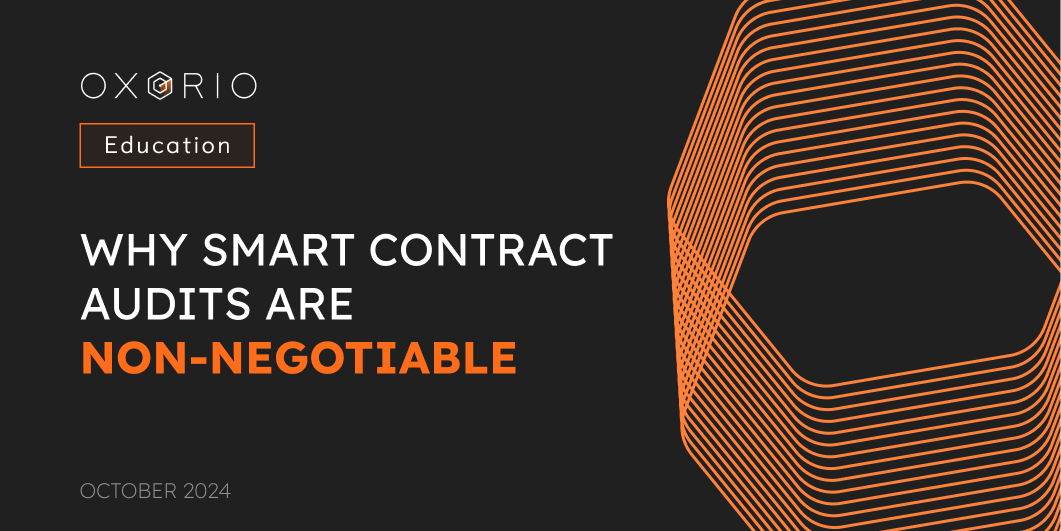
Unlocking Web3 Security: Why Smart Contract Audits are Non-Negotiable
The dawn of Web3 marks a significant shift in the digital landscape, introducing a decentralized internet where users have greater control over their data, assets, and online interactions.
By leveraging blockchain technology, Web3 promises enhanced transparency, security, and new avenues for innovation across various industries. However, with these advancements come unique challenges, particularly in the realm of security. Smart contracts—the self-executing agreements that power many decentralized applications (dApps)—are integral to this new ecosystem. Yet, if not properly secured, they can become critical points of vulnerability.
This exploration delves into the indispensable role of smart contract audits in the Web3 era. We’ll examine how Web3 is transforming digital interactions, highlight the significant risks associated with unaudited smart contracts through real-world examples, demonstrate how audits mitigate these risks, and showcase how OXORIO’s expertise can fortify your blockchain projects against potential threats.
The Web3 Revolution: Transforming Digital Interactions
Web3 represents the next evolution of the internet, moving beyond the centralized models of Web2 to create a more open, transparent, and user-centric digital environment. This transformation is driven by several core principles and technologies reshaping how we interact online.
Decentralization and User Empowerment
At the heart of Web3 is decentralization. By distributing control across a network of nodes rather than central authorities, Web3 diminishes the dominance of large corporations over user data and digital assets. This shift empowers individuals, granting them direct ownership and control over their information and its use.
- Data Ownership: Users retain control over their data, deciding who can access it and how it’s utilized.
- Permissionless Access: Anyone can participate in the network without needing approval from a central entity.
- Censorship Resistance: Decentralized networks are less susceptible to censorship, promoting free expression and innovation.
Blockchain Technology as the Foundation
Blockchain serves as the foundational technology for Web3, offering a secure and immutable ledger of transactions. This transparency ensures that all parties can verify and trust the data without relying on intermediaries.
- Transparency: All transactions are recorded on a public ledger, increasing accountability.
- Security: Cryptographic techniques protect data integrity and prevent unauthorized alterations.
- Consensus Mechanisms: Protocols like Proof of Work (PoW) and Proof of Stake (PoS) validate transactions without centralized control.
The Rise of Smart Contracts
Smart contracts are programmable agreements that automatically execute when predetermined conditions are met. They eliminate the need for intermediaries, reduce transaction costs, and increase efficiency.
- Automation: Contracts execute without human intervention, reducing errors.
- Trustless Transactions: Parties can transact without needing to trust each other, relying on the code’s integrity.
- Versatility: Applicable across various industries, from finance to supply chain management.
Impact Across Industries
Web3’s implications extend across multiple sectors:
- Finance (DeFi): Decentralized finance platforms facilitate lending, borrowing, and trading without traditional banks, increasing accessibility and reducing fees.
- Supply Chain: Blockchain enhances transparency and traceability, combating fraud and inefficiency.
- Digital Identity: Users maintain control over their digital identities, reducing identity theft and fraud.
- Governance: Decentralized autonomous organizations (DAOs) enable collective decision-making without centralized leadership.
Challenges Ahead
- While Web3 offers numerous benefits, it also presents challenges:
- Scalability: Maintaining fast and efficient networks as user adoption grows is critical.
- User Experience: Simplifying complex blockchain interactions is necessary for broader acceptance.
- Regulatory Uncertainty: Navigating legal frameworks in different jurisdictions is complex for decentralized platforms.
- Security Risks: Decentralization introduces new security considerations, particularly with smart contracts.
Understanding these challenges is essential for leveraging Web3’s full potential, and among them, security stands out as a paramount concern.
The Risks of Unaudited Smart Contracts: Lessons from Real-World Breaches
Smart contracts are powerful tools that automate and enforce agreements in the blockchain ecosystem. However, their complexity and immutable nature mean that vulnerabilities can lead to severe and irreversible consequences. Several high-profile incidents have underscored the dangers of deploying unaudited or poorly audited smart contracts.
Notable Security Breaches
The DAO Hack (2016)
The Decentralized Autonomous Organization (DAO) aimed to democratize venture capital funding. In 2016, an attacker exploited a vulnerability known as a reentrancy bug, allowing them to drain approximately 3.6 million Ether (worth around $70 million at the time) from the DAO’s funds.
- Impact: Significant financial loss and a crisis of confidence in Ethereum.
- Outcome: The Ethereum community implemented a hard fork, resulting in Ethereum (ETH) and Ethereum Classic (ETC).
Parity Wallet Vulnerabilities (2017)
Parity Technologies experienced two major security incidents:
- First Incident: A flaw in their multisignature wallet contract was exploited, resulting in the theft of over 150,000 Ether (about $30 million).
- Second Incident: A user accidentally triggered a bug that froze over 500,000 Ether (valued at more than $150 million), making the funds permanently inaccessible.
- Impact: Significant financial losses and highlighted risks associated with code reuse and inadequate auditing.
Poly Network Hack (2021)
- Attackers exploited a vulnerability in Poly Network’s smart contracts, stealing over $600 million in various cryptocurrencies.
- Impact: Shook the DeFi community and raised serious questions about security practices.
- Outcome: The hacker returned most of the funds, emphasizing the need for thorough security measures.
Consequences of Security Breaches
- Financial Losses: Direct theft can devastate users and organizations financially.
- Reputation Damage: Trust is eroded, impacting user adoption and investment.
- Regulatory Scrutiny: High-profile hacks attract attention from regulators, potentially leading to stricter regulations.
- Operational Disruption: Breaches can halt operations, causing delays and additional costs.
These examples illustrate that unaudited smart contracts pose significant risks, making robust security practices essential.
How Smart Contract Audits Mitigate Risks
Smart contract audits are systematic examinations of code by experienced security professionals to identify and rectify vulnerabilities before deployment. They are crucial for ensuring the reliability and security of blockchain applications.
The Auditing Process
1. Requirement Analysis
- Understanding Objectives: Auditors comprehend the intended functionality and use cases.
- Reviewing Documentation: Examining technical specifications and user guides to align expectations.
2. Automated Testing
- Static Analysis Tools: Detecting common vulnerabilities like reentrancy and overflows.
- Code Quality Checks: Ensuring adherence to best practices and standards.
3. Manual Code Review
- Expert Examination: Security experts uncover subtle bugs that automated tools might miss.
- Logic Verification: Confirm that contract logic aligns with intended functionality.
4. Security Testing
- Unit and Integration Tests: Testing individual components and their interactions.
- Fuzz Testing: Inputting unexpected data to detect how the contract handles anomalies.
5. Formal Verification (if necessary)
- Mathematical Proofs: Proving the correctness of critical components.
6. Reporting
- Detailed Findings: Documenting issues with explanations and severity levels.
- Recommendations: Providing actionable steps to fix vulnerabilities.
7. Remediation Support
- Collaboration: Working with the development team to resolve issues.
- Reassessment: Verifying that fixes mitigate the risks.
Benefits of Smart Contract Audits
- Risk Reduction: Minimizes the likelihood of successful attacks and associated losses.
- Enhanced Trust: Builds confidence among users, investors, and partners.
- Compliance Support: Helps meet regulatory requirements and industry standards.
- Performance Optimization: Identifies inefficiencies for improvement.
- Long-Term Security: Establishes a foundation for ongoing security practices.
By proactively addressing vulnerabilities, audits play a crucial role in safeguarding blockchain projects.
Oxor.io’s Expertise: Fortifying Your Web3 Projects
In the complex and ever-evolving landscape of Web3, partnering with a trusted security expert is essential. Oxor.io specializes in providing comprehensive smart contract auditing services, leveraging deep industry knowledge and advanced tools to protect your projects.
Why Choose Oxor.io?
Experienced Team
- Blockchain Specialists: Seasoned professionals with extensive experience in blockchain development and cybersecurity.
- Cross-Platform Expertise: Proficient in auditing contracts across platforms like Ethereum, Binance Smart Chain, and Solana.
- Continuous Learning: Staying updated on the latest threats and security practices.
Comprehensive Services
- Tailored Audits: Customizing the auditing process to meet your project’s specific needs.
- Advanced Tools: Utilizing the latest methodologies to assess your contracts thoroughly.
- Detailed Reporting: Providing clear, actionable reports to address identified issues.
Collaborative Approach
- Partnering with Clients: Working closely with your team throughout the process.
- Remediation Support: Assisting in implementing fixes and offering guidance on best practices.
- Ongoing Support: Offering continued assistance as your project evolves.
Proven Track Record
- Successful Audits: Securing numerous blockchain projects across industries.
- Client Satisfaction: Positive testimonials highlighting commitment to excellence.
- Industry Recognition: Contributing to the blockchain community through research and leadership.
By choosing Oxor.io, you’re investing in a partnership dedicated to ensuring the security and success of your blockchain ventures.
Final Thoughts
As Web3 continues to reshape the digital world, the importance of security in the blockchain ecosystem cannot be overstated. Smart contracts are foundational to this new paradigm, but their potential vulnerabilities pose significant risks if not properly addressed. The irreversible nature of blockchain transactions means that proactive security measures are essential.
Smart contract audits are not merely best practices—they are necessities for any serious blockchain project. By thoroughly examining and testing contracts before deployment, audits help prevent costly breaches, protect your reputation, and build trust with users and investors.
OXORIO stands ready to assist you in navigating these challenges. Our expertise ensures that your projects are robust, secure, and prepared to thrive in the Web3 environment. We’re committed to helping you unlock the full potential of blockchain technology while safeguarding against inherent risks.
Secure your blockchain project’s future today. Partner with oxor.io and let us fortify your smart contracts against tomorrow’s challenges. Together, we can build a more secure and trustworthy Web3 ecosystem.
Contents
YOU MAY ALSO LIKE

Unchecked Return Values
Education
Discover the critical risks of unchecked return values in smart contracts and how they can lead to catastrophic vulnerabilities. Learn best practices for secure coding, effective mitigation strategies, and real-world examples of exploited weaknesses.
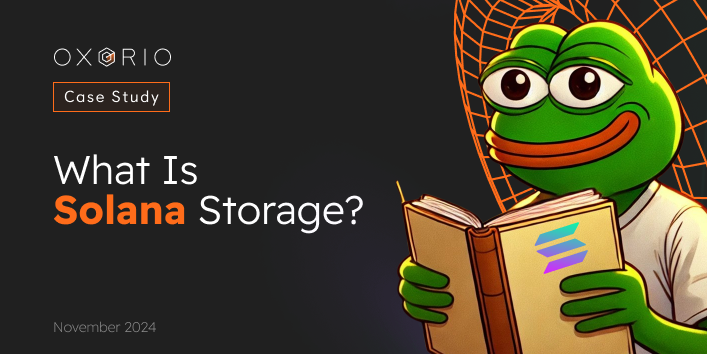
What is Solana Storage?
Education
Discover Solana's unique approach to blockchain storage with an in-depth exploration of its Programs and Accounts model.
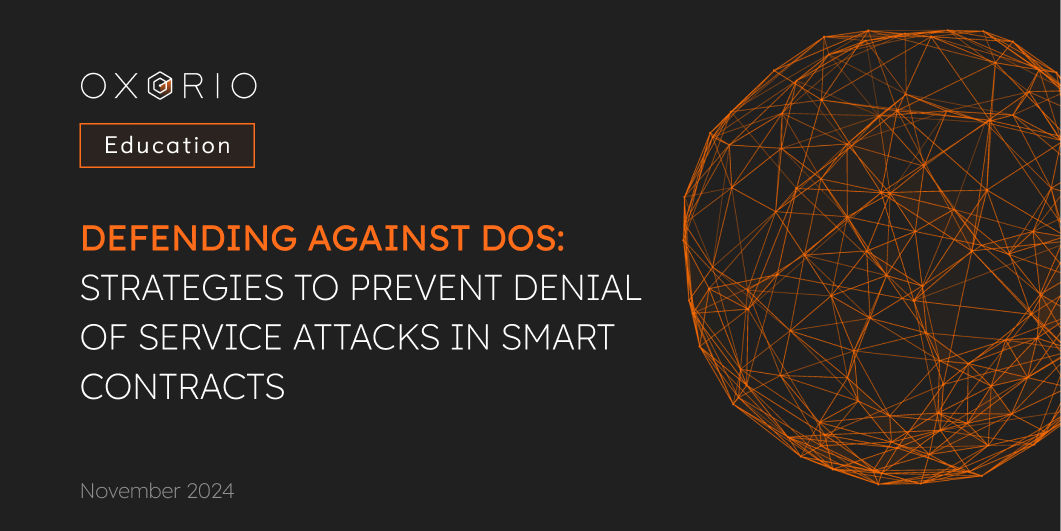
Defending Against DoS: Strategies to Prevent Denial of Service Attacks in Smart Contracts
Education
Explore how DoS attacks like Unexpected Reverts, Block Gas Limits, and Block Stuffing disrupt Solidity smart contracts. Learn security methods to safeguard your blockchain projects.
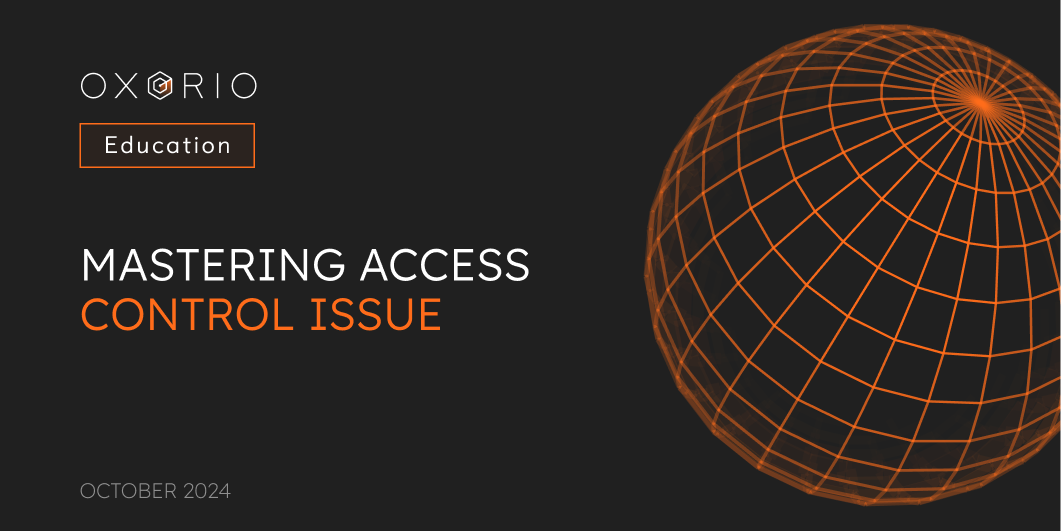
Mastering Access Control Issue: Ensuring Only Authorized Interactions with Your Contract
Education
Explore how access control vulnerabilities led to the $7 million GAMEE Token hack. Learn from code examples, discover prevention strategies, and see how OXORIO can secure your blockchain projects.
Have a question?

Stay Connected with OXORIO
We're here to help and guide you through any inquiries you might have about blockchain security and audits.


